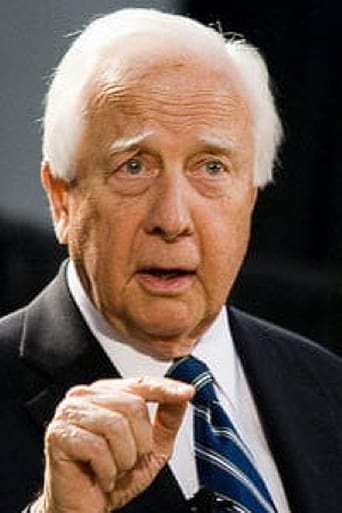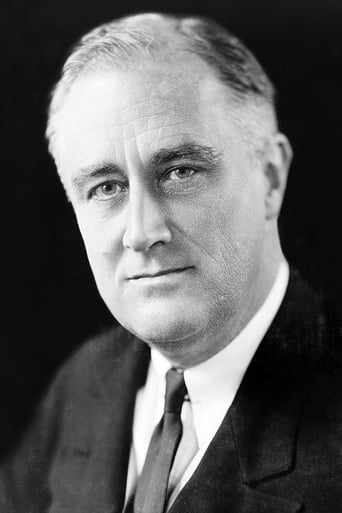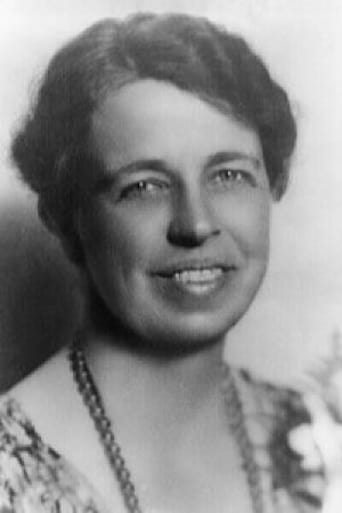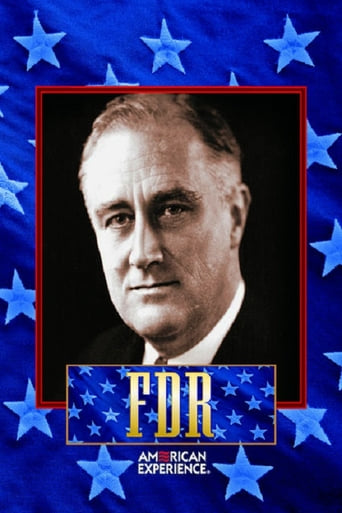
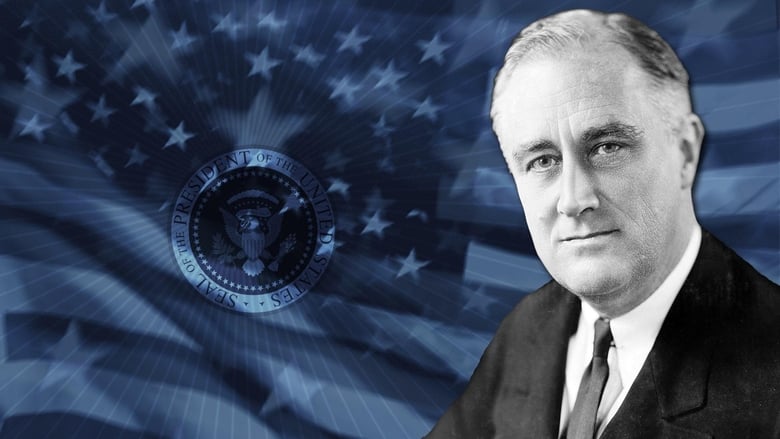
FDR (American Experience) (1994)
Polio at age 39, president at age 50. Explore the public and private life of a determined man who steered this country through two monumental crises: the Depression and World War II. FDR served as president longer than any other, and his legacy still shapes our understanding of the role of government and the presidency. A film by award winning filmmaker David Grubin. This is the second of four parts.
Watch Trailer
Cast


Reviews
Load of rubbish!!
The film's masterful storytelling did its job. The message was clear. No need to overdo.
The movie turns out to be a little better than the average. Starting from a romantic formula often seen in the cinema, it ends in the most predictable (and somewhat bland) way.
The movie's not perfect, but it sticks the landing of its message. It was engaging - thrilling at times - and I personally thought it was a great time.
This is the first part of a PBS documentary from "The American Experience" concerning the life of Franklin Roosevelt. It covers his life from birth up until he boards the train for Washington to assume the presidency.Like many episodes of the series, it's narrated by historian/writer David McCullough. In addition, it's made up of various interviews, photos and stock film. Together, with some appropriate music, it made for a very well-done documentary.Much of what I saw I already knew. After all, I am a retired American and World History teacher. However, I liked the film because it still packed a few surprises. For example, although it's common knowledge NOW that he was paralyzed from polio, I had no idea that he spent 2/3 of his fortune building a rehabilitation facility for other victims of the disease. And, while I am aware of the tricks he used to make it appear as if he could walk, seeing the footage and hearing exactly how he did it was pretty interesting--and pretty sad that they had to worry about folks who might hold his disability against him. All in all, the story was very well told and I am looking forward to part two. A bully good program...no, wait...that's the wrong Roosevelt.
What's the best word to describe the conditions Franklin Delano Roosevelt had to face and try to overcome? Challenging? I guess George Washington had more fundamental questions to answer, such as what he was to be called. (Someone suggested "Your Excellency," but he settled for "Mister President.") And certainly Lincoln had his problems, a nation busily annihilating itself. But think of FDR's difficulties.(1) In the 1920s, a paralysis from the waist down that by mutual agreement the press avoided mentioning but which would have stymied his political career. The guy couldn't walk.(2) The worst depression in the nation's history. Hoover, not a bad man, sat in the White House bewildered, believing that it was not the government's job to interfere with the market, while a third of the work force lost their jobs and people lived in caves in Central Park. "If you put a rose in Hoover's hand," someone remarked, "it would wilt." And Roosevelt was elected without having stated any plan for getting us out of it. When reporters asked, he put his finger to his lips and said, "Shhh." (3) World War II.Parts One and Two of this excellent series takes us up to World War II, which was then called something else because we hadn't yet learned to number them.He was born into a wealthy aristocratic family, dominated by his mother, and married a cousin, Teddy Roosevelt's niece, Eleanor. After she discovered that he'd had an affair while on one of his many vacations, intimacy between them ceased and her activities became functionally autonomous.He was elected in 1932 with the enthusiastic support of most Americans, including his wealthy peers, who figured he'd be true to the business-friendly values he'd grown up with. But he surprised them by instigating a massive intrusion of government funds into private industries and by creating an alphabet soup of programs that provided jobs directly to the disenfranchised -- many of them during his first hundred days in office.In 1936, he was again elected by a landslide. But by this time, his enemies among the elite were wising up and recognizing him as a traitor to the traditionalist cause. The Republicans in Congress fought him whenever he moved, with caustic attacks that sound very much like those we're hearing today -- bloated government, high taxes, intrusion into the free market, increased regulation, and the rest. There wasn't an internet but there was a radio available for use by critics from both sides -- Father Coughlin wanted to nationalize the banks and the communists wanted to abolish capitalism; the captains of industry and the wealthy families of America wanted him to stop noodging them. The Supreme Court declared everything unconstitutional except FDR's very existence. FDR wasn't simply disliked by his opponents. They hated him personally. He became "that man in the White House."But FDR's success went to his head and he overreached, trying to stack the Supreme Court with flunkies who would deliver opinions in his favor. After 1936, some of the ardor of his supporters cooled, as they mistook his pragmatism for ideology, and there was another noticeable drop in the economy's health.I suppose it's possible to look at this presentation as propaganda. (Any statement about ethics is, in a sense, propaganda.) There are innumerable photos and film clips of FDR riding along in his car, smiling, waving, sporting that cigarette holder in the side of his mouth. But that's the kind of man he was -- charming, optimistic, given to overcoming hardships by will power, liable to forget all about you two minutes after making you one of his dearest friends.If the film fails to show FDR in moments of despair, it may be because there were so few of them. We do see him, from time to time, grim and perhaps depressed, including the first time one of his proposals was defeated by the Congress.Of the episodes in this series -- now available in a boxed set -- that I've seen so far, I'd call "Reagan" good, "Wilson" below average, "T.R." good, and "FDR" the most thorough and the most thoroughly reasoned so far. All of them have been even handed.


